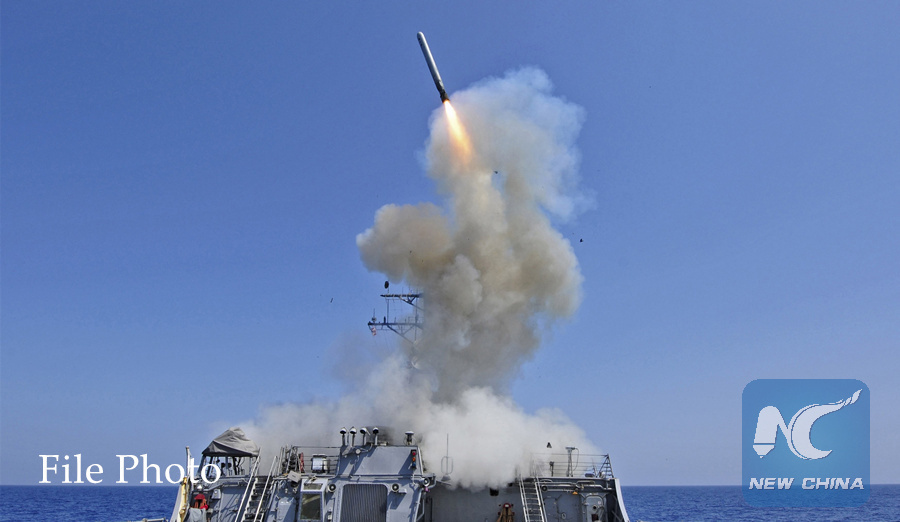
The guided-missile destroyer USS Barry launches a Tomahawk cruise missile from the ship's bow in the Mediterranean Sea in this U.S. Navy handout photo taken March 29, 2011. (Reuters Photo)
MOSCOW, Jan. 23 (Xinhua) -- The Russian 9M729 land-based cruise missile, contrary to the allegations of the United States, does not fall under the Intermediate-Range Nuclear Forces Treaty (INF), senior Russian officials said Wednesday.
"Russia has fulfilled and continues to strictly observe the provisions of the treaty and does not allow any violations," said Lt.-Gen. Mikhail Matveyevsky, Chief of the Missile Troops and Artillery Branch of the Russian Armed Forces.
He spoke at a news briefing on the cruise missile for military attaches and Russian and foreign media, saying that the United States uses the missile to accuse Russia of violating the 1987 treaty and threatens to abandon it.
"The 9M729 missile could not be tested at the prohibited range of 500 to 5,500 km, as it was developed for other purposes," Russian Deputy Foreign Minister Sergei Ryabkov said at the briefing.
According to Matveyevsky, the missile, which was demonstrated at the briefing in the Moscow region, is a modernized version of the 9M728 cruise missile, part of the short-range Iskander-M missile system.
The 9M729 missile is 53 cm longer than its predecessor and its maximum range decreased by 10 km to 480 km, which is below the minimum 500 km range set by the treaty, Matveyevsky said.
Under the INF Treaty signed between the Soviet Union and the United States, the parties committed themselves to liquidating their ground-based medium-range and shorter-range missiles, the launchers of such missiles, as well as the associated auxiliary facilities and equipment.
By June 1991, the Soviet Union destroyed 1846 medium- and shorter-range missiles, as well as 106 launchers and 239 Oka missiles with a range of 400 km as a gesture of goodwill, Matveyevsky said.
Meanwhile, Ryabkov said that the United States is testing drones and other systems banned by the INF treaty.
He recalled that Russia, which defends the preservation of the treaty, had proposed to the United States "to jointly think over measures of transparency with regard to the means that are the subject of Russian concerns."
In October, U.S. President Donald Trump said Washington would pull out of the INF Treaty on account of Russia's alleged breach of the agreement, which Moscow has repeatedly denied, saying that it has been making every effort to maintain the arms control deal.

